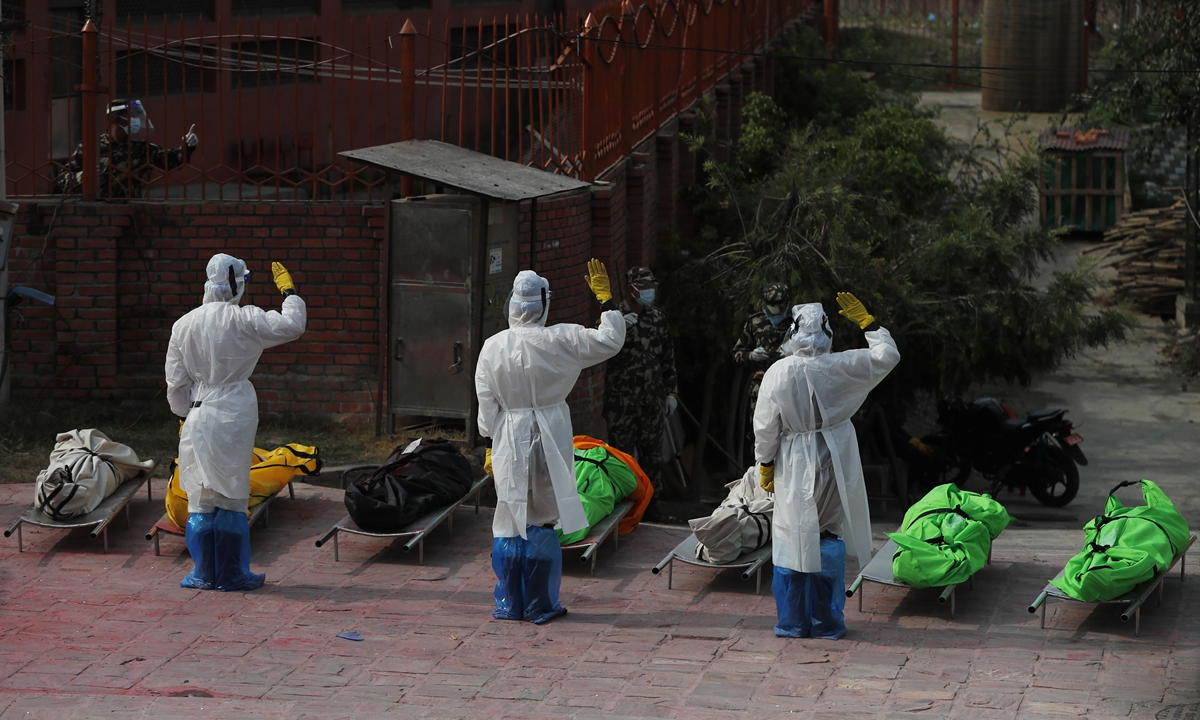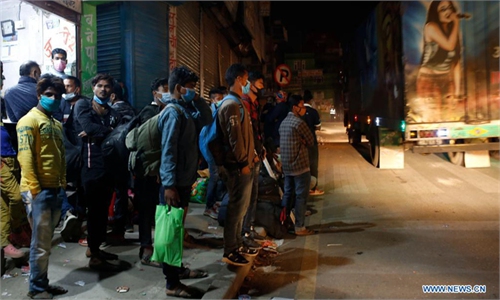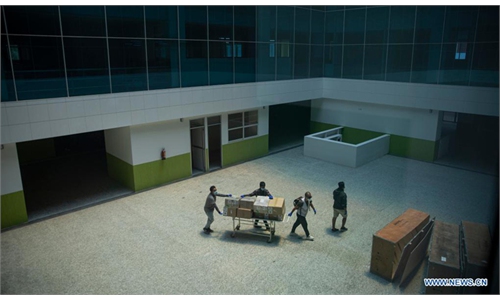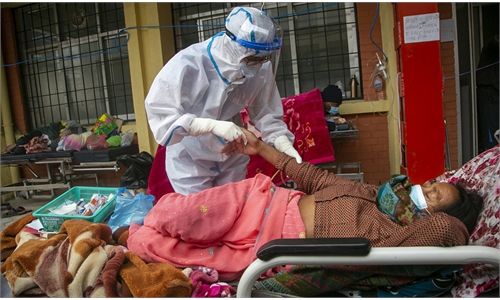COVID-19 epidemic shows who Nepal's good neighbor is

Nepalese army personnel pay tribute to COVID-19 victims before cremating their bodies near Pashupatinath temple in Kathmandu on Friday. Doctors in Nepal warned of a major crisis as daily coronavirus cases hit a record. Photo: AP
These days Kathmandu is living a lot slower than usual after a lockdown was announced in the capital districts on April 29.Hundreds of thousands of residents have flocked to their home districts. The capital city is again under COVID-19 surges and looks it will take a lot longer to be back to normal. As of Wednesday, over 413,000 confirmed COVID-19 cases and over 4,000 deaths were recorded.
With limited hospitals, manpower, and physical infrastructure, the situation is getting out of control for the government. In recent days, demand for oxygen cylinders, ICU beds, and ventilators have surged to their highest levels. Different groups and organizations have been helping families in need. But this won't be enough to treat severely ill people and contain the virus at this moment. This grave matter needs some extra attention.
After the deadly earthquake in 2015, the government of Nepal looked at its neighbors, mainly India and China. Now, India itself is in bigger trouble because of the second wave of the COVID-19. The eyes are upon its neighbor to the north this time.
Nepal and China have been good neighbors for a long time but the two countries are at the best time in terms of relation and cooperation. There have been several high-level talks on both sides following the historic visit of Chinese President Xi Jinping to Nepal in October 2019. Nepalese President Bidya Devi Bhandari and Prime Minister KP Sharma Oli had also visited China in recent years.
During the 2015/16 Indian blockade toward Nepal, China opened its heart to help the country by signing 10 different agreements including an agreement to open its ports to Nepal. Before that, Nepal was forced to use Indian ports for its imports. Some parts of the cooperation, such as the Pokhara International Airport plan, the feasibility study of oil and gas exploration in Nepal, and the open trade feasibility study are already taking shape.
Nepal has always treated India with more privilege. We have done almost everything to make sure that India never gets upset with us. We have compromised with borders, law and many unequal treaties. Even after we were terribly damaged by the COVID-19 epidemic, we didn't ban flights from India until we banned all international flights from May 5 midnight. Instead, Nepal should have stopped the flights with India way earlier.
Without vital help from India, in order to make India happy, Nepal had failed to make a healthy relation with China. Chinese vaccines were delayed to be approved in Nepal to give Indian vaccines priority. Despite so many expectations, New Delhi showed no mercy to Kathmandu when the second wave hit Nepal so bad. No measures were taken at borders, certain medicines were put on a ban to export, and no sort of aid whatsoever was announced, leaving Nepal alone without any resources.
For example, last week the Chinese Foreign Ministry organized a video conference with Nepal, Afghanistan, Pakistan, Sri Lanka, and Bangladesh after a surge in COVID-19 cases in these countries. Chinese State Councilor and Foreign Minister Wang Yi discussed the supply of COVID-19 vaccines and the role of China to help support neighboring countries during these hard times.
The joint meeting attended by the Foreign Minister of Nepal Pradip Gyawali was very much appreciated by the general public in Nepal - especially after China announced that it was ready to help Nepal in any way to combat this situation. As the situation gets worse in Nepal, this is the extra hand the country is waiting for.
This might even be a better chance for both countries to come to a point where they maintain close communication and collaboration in international and regional affairs. Although India has been a key player in trade and politics in Nepal, there was a decent amount of discomfort when India decided to ban all vaccine exports for COVID-19. The commitment and help toward this humanitarian crisis will touch the lives of millions.
Roshan Khadka is the editor-in-chief of Kathmandupati Online news portal and Raj humagain is a Youth entrepreneur and political activist. opinion@globaltimes.com.cn



